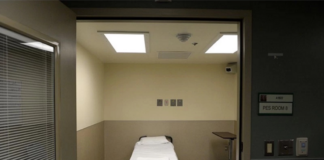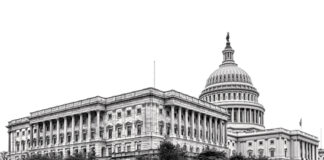Tag: prohibition of forced treatment
Spotlight on Institutional Psychiatry
Spotlight on Institutional Psychiatry is a response by psychiatric survivors and allies to Operating in Darkness, a scathing 2017 report on British Columbia’s Mental Health Act Detention System. We hope that professionals will take note of the devastating effects of forced psychiatric treatment and be moved to speak out, and, above all, that survivors will feel encouraged and inspired by our efforts.
How Would We Know If We Overthrew the Mental Health System?
What would it take to go about abolishing psychiatry? If we truly eliminated all the horrid practices that are currently committed by the mental health system, what would the world look like? What follows are 15 ways our society would need to change before we could be confident that we are free from the tyranny of the mental health system.
The Helping Room
Every culture has its share of individuals who break down in bewilderment. People who hallucinate, behave beyond norms, seek to die, think in strange ways.
The Mental Health Reform Act of 2016 (SB 2680) Would Be...
There is indeed a crisis in the mental health business. The crisis derives from psychiatry's spurious and self-serving premise that all significant problems of thinking, feeling, and/or behaving are brain illnesses that are correctable by psychiatric drugs.
Dear Boston Globe, Part IV: A Taste of Your Own Medicine
The Boston Globe paints a picture (in the vivid way that they so love to do) that pins the system’s decline primarily on budgetary issues, but there is more than one way for a system to be ‘broken.’ In fact, where the Globe goes most wrong in their latest piece, ‘Community Care,’ is in their failure to adequately recognize that the system has always been broken in one way or another in this country.
A Diluted Murphy Bill Clears the House and Goes to the...
Organized psychiatry, committed irrevocably and wholeheartedly to drug pushing and to their corrupt and corrupting relationship with pharma, simply will not countenance the fact that their primary product is fundamentally flawed and destructive. So they hire a PR company; they fund and lobby politicians; they parrot slogans; and they encourage one another to ever-increasing heights of self-congratulation. But they will not commission a definitive study to clarify and assess the scale of this problem once and for all. And the reason for this inaction is because they know that it would be bad for business. It would "cause a lot of people to stop taking their medications."
The Murphy Bill, HR 2646 — a Heinous Piece of Legislation...
The National Coalition for Mental Health Recovery is calling upon all people of like minds, who care about individuals who need mental health services, to ACT. It is urgent. Please call your representative in the House of Representatives to vigorously oppose HR 2646 on Tuesday, July 5, 2016. And, call your Senator to insist that the Senate reject any amendments or changes to mental health legislation from the House by Friday, July 8, 2016. For more information about this Call to Action, please click here.
In the Matter of the Hospitalization of Mark V
Today, July 1, 2016, the Alaska Supreme Court issued its Opinion in In the Matter of the Hospitalization of Mark V. What strikes me the most about the case is that Mark's expressing the view that a psychiatric drug he was being required to take is poison, that it had side effects related to his sexual performance, and that it was killing him were all cited as proving Mark was delusional. As readers of this site know, these drugs can quite reasonably be characterized as poison, they do cause sexual dysfunction, and they are quite lethal to many many people, shortening lives on average by 25 years for those in the public mental health system, such as Mark.
Forced “Treatment” is Torture
I have opposed involuntary treatment for my entire career and first began criticizing it in the medical literature in 1964. As Thomas Szasz originally taught, involuntary psychiatric treatment is unconstitutional and an assault on basic human rights. I am also against it on scientific grounds, because after hundreds of years, this violation of human rights has generated no scientific studies to show that it benefits its victims. I am encouraged by the excellent blog by Peter C. Gøtzsche on MadinAmerica.com, which inspired me to put a new section, Psychiatric Coercion and Involuntary Treatment, on my website, and to compose these further observations of my own.
Testifying in Vermont: Forced Drugs
Vermont Governor Shumlin recently suggested a change to state law that would accelerate the process under which a person could be forced to take antipsychotic drugs against her will. The House Human Services Committee reviewed this proposal and I was asked to testify. What follows are my comments.
The CHRUSP Call to Action, and Its Significance
Various instruments of the United Nations have commented on forced treatment, or involuntary confinement, or both (for details, see Burstow, 2015a), and a number of truly critical additions to international law have materialized. Arguably, the most significant of these is the Convention on the Rights of Persons with Disabilities. What makes it so significant? For one thing, it is because this landmark convention puts forward nothing less than a total ban on both involuntary treatment and the involuntary confinement of people who have broken no laws.













